Can AI Help Solve Its Own Ethical Problems?
15 January 2025
Artificial Intelligence (AI) is taking over the world, not in a “Terminator” kind of way (thankfully), but it’s becoming a huge part of our daily lives. From helping you choose what to watch next on Netflix, to powering self-driving cars, or even writing articles (wink, wink), AI is everywhere! But with great power comes great responsibility, right? And while AI can do a lot of things, it also brings up some pretty serious ethical issues. The big question is: Can AI help solve its own ethical problems?
In this article, we’ll dive into some of the main ethical concerns surrounding AI and explore whether AI itself holds the key to fixing them. Spoiler: It’s not a straightforward yes or no. But that’s what makes this topic so interesting!
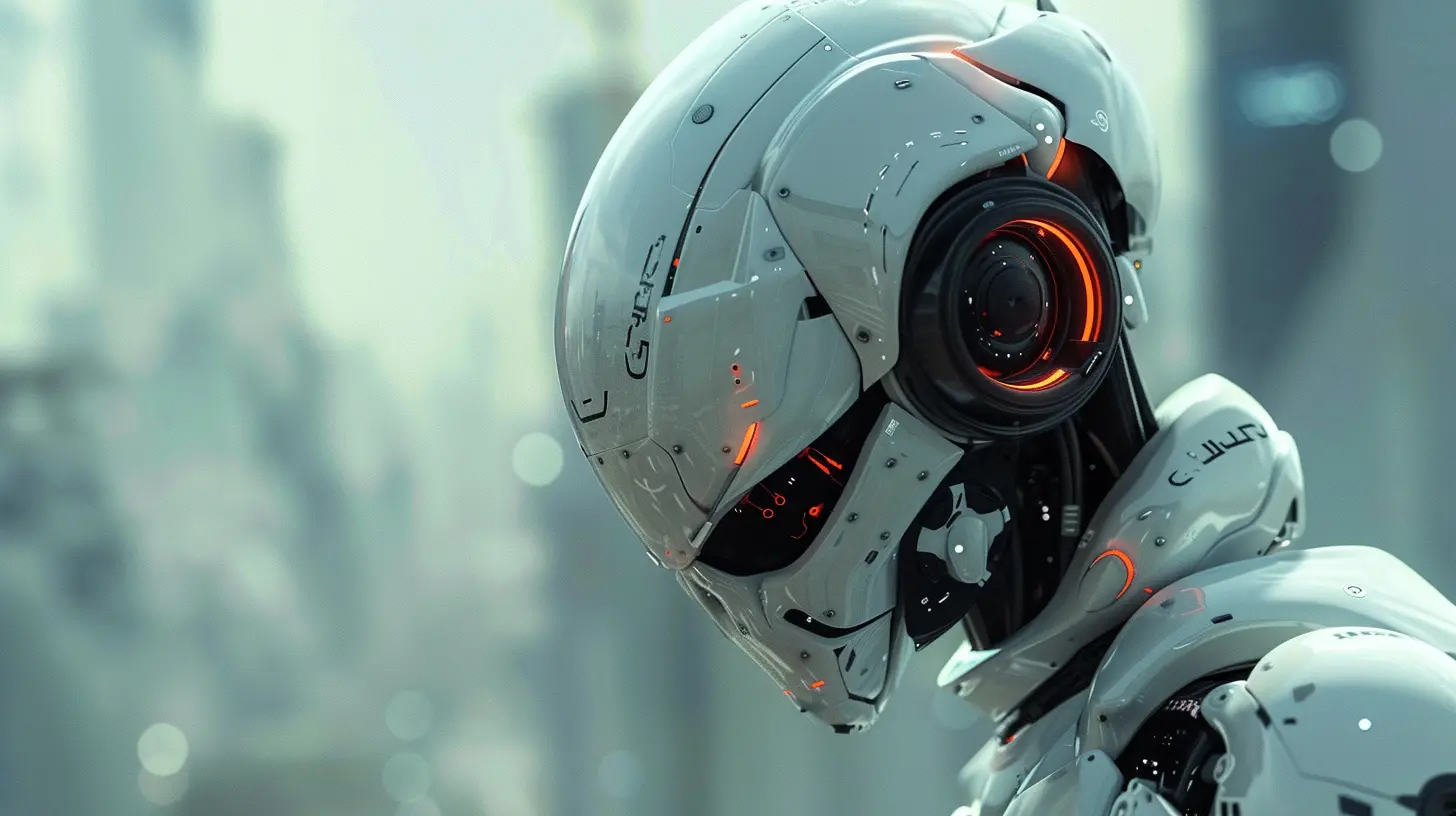
What Are AI’s Ethical Problems?
Before we can figure out if AI can solve its own ethical dilemmas, we need to understand what those dilemmas are in the first place. You’ve probably heard about some of them, but let’s break it down.1. Bias in AI Algorithms
One of the most well-known ethical problems with AI is bias. AI systems are trained on data—huge amounts of it. If the data itself is biased, the AI will likely inherit those biases. For example, facial recognition software has been found to be less accurate in identifying people of color compared to white individuals. That’s because the datasets used to train the AI were predominantly made up of images of white people.2. Lack of Transparency
AI systems can be incredibly complex. So complex, in fact, that even the people who create them don’t always understand how they work. This is often referred to as the “black box” problem. If we don’t know how an AI is making decisions, how can we trust those decisions? And how can we hold it accountable when things go wrong?3. Job Displacement
AI is great at automating tasks, but that’s a double-edged sword. While it can make processes more efficient, it can also lead to job losses. For example, self-checkout machines in grocery stores are replacing human cashiers. Truck drivers may one day be replaced by self-driving trucks. So, should we be concerned about the economic impact of AI? Absolutely.4. Privacy Concerns
AI systems often collect and process massive amounts of data, much of it personal. Think about the data collected by your smartphone, smart home devices, or even your social media accounts. When AI gets hold of this data, who controls it? And how can we ensure that our privacy is protected?5. Autonomous Weapons
This is where things get a little scary. AI is being used to develop autonomous weapons, which can make decisions about who to target without human intervention. This raises a whole host of ethical questions. Should machines be allowed to make life-and-death decisions? Most people would probably say no, but that hasn’t stopped the development of such technology.6. Artificial General Intelligence (AGI)
This is the stuff of sci-fi movies—the idea that one day AI could reach a point where it becomes as intelligent as, or even more intelligent than, humans. If we ever reach that point, we’ll have to grapple with questions about AI having rights, making its own decisions, and even what it means to be human.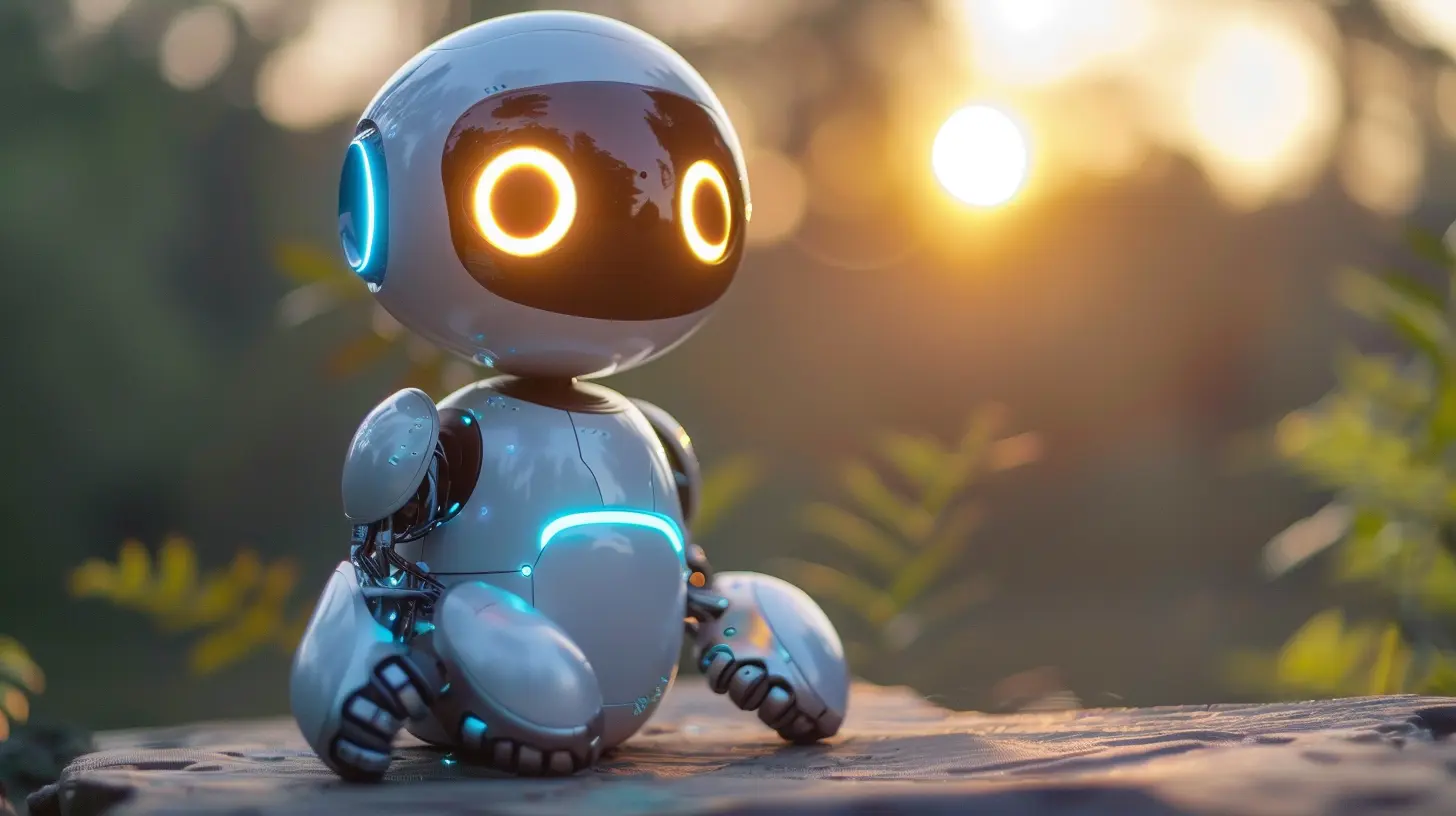
Can AI Address These Issues?
Now that we’ve established what the ethical problems are, let’s tackle the million-dollar question: Can AI actually help solve these problems?1. AI Can Help Detect and Mitigate Bias
Ironically, AI could be part of the solution to its own bias problem. By using techniques like "machine learning fairness" or "algorithmic auditing," AI can be designed to detect when bias is present in a dataset and make adjustments accordingly. However, the tricky part is that AI can only be as unbiased as the people who create it. If the people building the AI don’t prioritize fairness, then even the most sophisticated AI could still end up being biased.Example: Imagine you’re building an AI to help with hiring decisions. If your training data contains a history of biased hiring practices (for instance, favoring male candidates over female candidates), your AI might learn to replicate those biases. But, if you use AI to constantly check for patterns of bias and correct for them, you’ll get a fairer system over time.
2. Transparency Through Explainable AI
AI might be able to solve the “black box” problem through something called “Explainable AI” (XAI). This is a branch of AI research focused on making AI systems more understandable. The goal is to create AI that doesn’t just spit out decisions, but also explains how it arrived at those decisions.It’s like asking a math teacher to show their work, not just give the final answer. By making AI more transparent, we can better understand its decision-making process and hold it accountable when things go wrong.
3. AI Can Create Jobs, Not Just Take Them
While AI does have the potential to replace some jobs, it can also create new ones. Think about it: someone has to design, build, and maintain these AI systems. Plus, as AI takes over more repetitive tasks, humans can focus on more complex, creative, and rewarding work. AI could even help identify new opportunities for jobs that don’t exist yet.For instance, who would have thought 20 years ago that "social media manager" would be a legitimate job? Similarly, AI could lead to the creation of entirely new industries that we can’t even imagine right now.
4. AI Can Enhance Privacy Protections
AI isn’t all about invading your privacy. In fact, it can be used to protect it. Techniques like "differential privacy" allow AI to analyze data without accessing sensitive personal information. AI can also help identify and prevent data breaches before they happen, keeping your data safer than ever before.However, privacy protection depends on the intentions of those using AI. If companies prioritize profit over privacy, even the best AI privacy tools won’t be enough.
5. AI Can’t (and Shouldn’t) Make Life-or-Death Decisions
When it comes to autonomous weapons, most experts agree that AI should not be allowed to make life-or-death decisions. While AI can assist in certain areas—like identifying potential threats—it should always be under human control. AI can help flag ethical concerns, but ultimately, humans need to be responsible for making the final call.6. AGI: The Final Frontier
Artificial General Intelligence (AGI) is still a long way off, but it’s worth considering how we’d deal with it if it ever becomes a reality. Could AI help us develop ethical guidelines for AGI? Possibly. AI could play a role in modeling different ethical scenarios and helping us weigh the pros and cons of different approaches.But here’s the tricky part: if AGI becomes as intelligent as humans, it may start to form its own ethical perspectives. And that raises a whole new set of questions. Will AGI agree with human ethics? What happens if it doesn’t?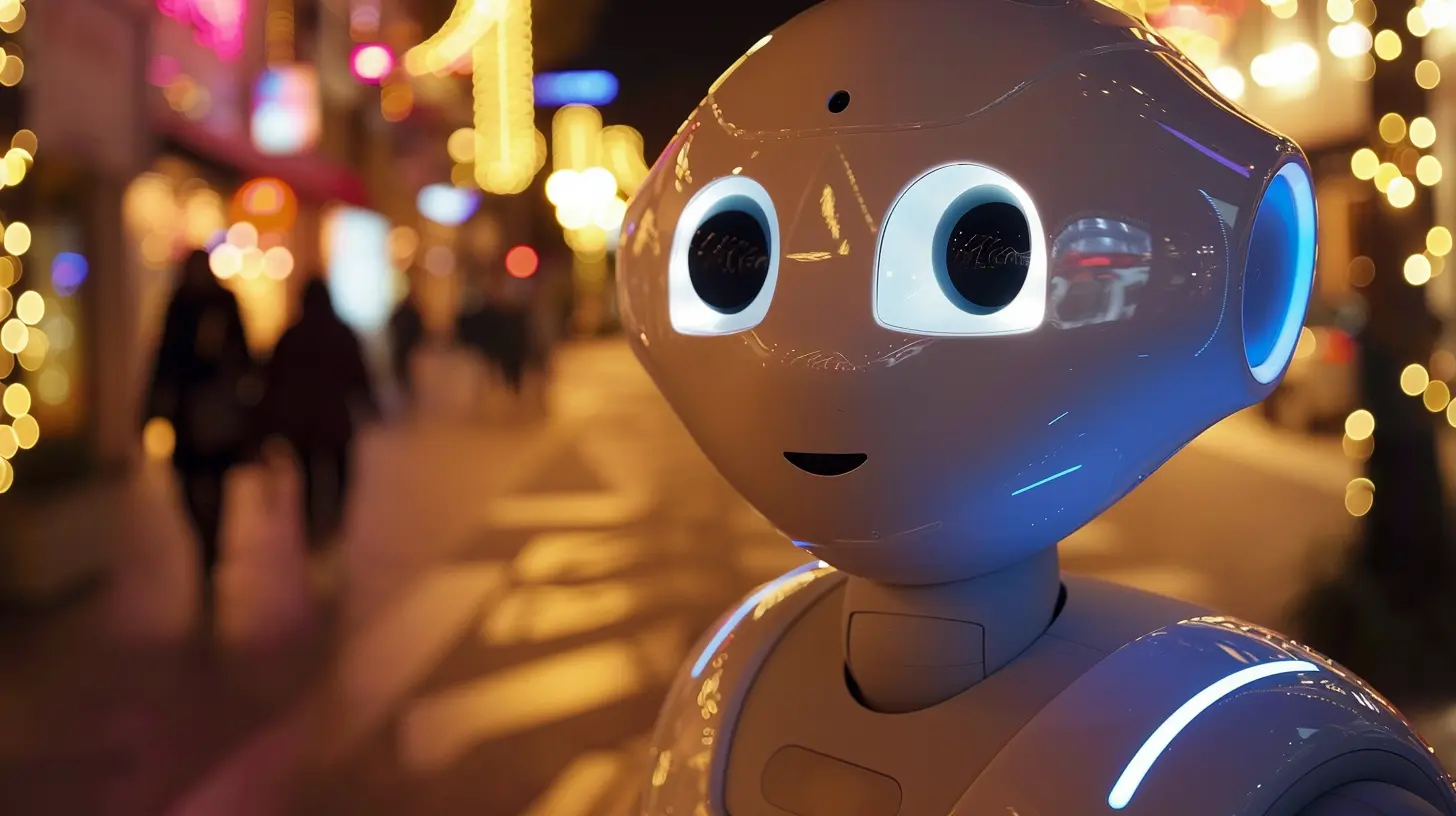
The Human Touch: Why We Still Need People
While AI has the potential to help solve some of its ethical problems, it’s important to remember that humans need to stay in the loop. AI is a tool, and like any tool, it can be used for good or for harm, depending on how it’s wielded.We can’t just leave ethical decision-making up to machines. It’s our responsibility to set the rules, monitor AI systems, and ensure that they are being used in ways that benefit society. AI can help us flag ethical issues, but it’s still up to humans to make the final judgment calls.
Think of it like driving a car. The car can help you get from point A to point B, but you’re the one behind the wheel. Similarly, AI can help guide us through complex ethical problems, but we need to stay in control.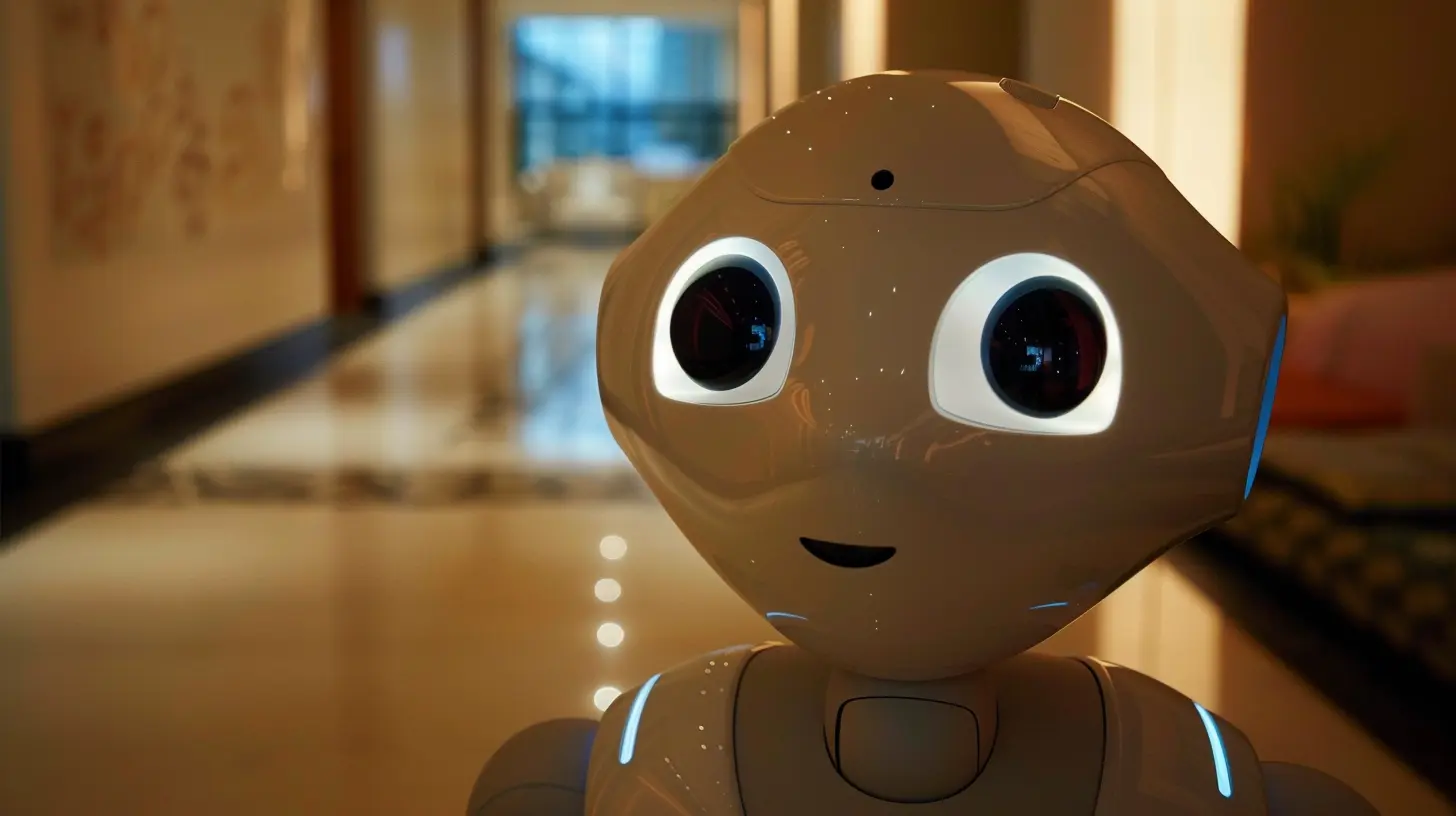
Conclusion: A Collaborative Effort
So, can AI help solve its own ethical problems? The answer is... kind of. AI can certainly assist in identifying, mitigating, and even preventing some ethical issues. But it’s not a magic bullet. It requires ongoing human oversight, ethical guidelines, and a commitment to fairness from the people who create and use these systems.At the end of the day, AI is a reflection of us—our values, our biases, and our decisions. If we want ethical AI, we need to be ethical people. It’s a collaborative effort between humans and machines, and that’s what makes it such an exciting, challenging, and important area of exploration.
all images in this post were generated using AI tools
Category:
Ai EthicsAuthor:

Marcus Gray
Discussion
rate this article
21 comments
Rina McClary
AI's potential to address its own ethical dilemmas is intriguing, but it raises concerns about accountability and oversight. Relying solely on AI to navigate complex ethical landscapes could be risky; human judgment and regulatory frameworks remain essential for responsible development.
March 4, 2025 at 7:41 PM

Marcus Gray
You're absolutely right. While AI can assist in identifying ethical dilemmas, human oversight and regulatory frameworks are crucial to ensure accountability and responsible development. Balancing both is key to navigating these complexities.
Rory Kline
What a fascinating topic! It's exciting to think about how AI can not only advance technology but also address its own ethical dilemmas. Collaboration between humans and AI holds the potential for a brighter, more responsible future! 🌟
February 15, 2025 at 7:28 PM

Marcus Gray
Thank you for your insightful comment! Indeed, the collaboration between humans and AI is crucial for navigating ethical challenges and fostering a responsible future. 🌟
Nixie McCabe
Absolutely! AI's evolution can lead to innovative ethical solutions—let's embrace the journey together!
February 3, 2025 at 12:37 PM

Marcus Gray
Thank you! Embracing AI's evolution is crucial for developing ethical solutions. Let's continue this journey together!
Raelyn McGivern
While AI holds promise for addressing ethical dilemmas, its solutions must be guided by human values. Without this, technology risks perpetuating existing biases and injustices.
January 26, 2025 at 9:38 PM

Marcus Gray
Absolutely, ethical AI development requires a foundation rooted in human values to effectively address biases and injustices.
Olivia Carey
AI addressing its own ethical dilemmas? That’s like asking a cat to train itself not to knock things off the table. Let’s face it: tech can’t babysit its own conscience. We need humans in the driver’s seat!
January 23, 2025 at 3:29 AM

Marcus Gray
You make a valid point about the necessity of human oversight in AI ethics. While AI can assist in identifying issues, human judgment remains crucial for addressing ethical dilemmas effectively.
Rocco Jordan
This article compellingly explores the paradox of AI addressing its ethical dilemmas. While AI offers tools for analyzing biases and improving decision-making, reliance on technology to rectify its ethical shortcomings raises concerns about accountability and transparency. Ultimately, a collaborative approach involving diverse human oversight is essential for responsible AI development.
January 22, 2025 at 8:32 PM

Marcus Gray
Thank you for your insightful comment! I completely agree that a collaborative human-AI approach is vital for ensuring accountability and transparency in ethical AI development.
Patience McInnes
Great read! It’s exciting to think that AI might tackle its own ethical dilemmas. Let’s embrace the journey and keep the conversation lively—innovation is just around the corner!
January 22, 2025 at 4:24 AM

Marcus Gray
Thank you! I'm glad you enjoyed the article. It’s a fascinating topic, and I agree—embracing the dialogue is key to driving innovation forward!
Leona McCarty
This article raises fascinating questions about AI's role in addressing its own ethical dilemmas. It’s intriguing to consider whether machine learning algorithms could truly grasp complex moral frameworks. Could AI not only enhance its decision-making processes but also contribute to evolving ethical standards in technology? Exciting possibilities lie ahead!
January 21, 2025 at 4:23 AM

Marcus Gray
Thank you for your insightful comment! Indeed, exploring AI's potential to navigate and influence ethical frameworks opens up exciting avenues for both technology and society.
Sera McCaw
Empowered AI ethics: Innovation for a brighter future!
January 20, 2025 at 7:54 PM

Marcus Gray
Thank you! Empowering AI with ethical frameworks is crucial for fostering innovation while ensuring responsible development.
Marcus Cox
AI's potential to address its own ethical dilemmas is a beacon of hope. By fostering collaboration and transparency, we can create a future where technology aligns with our values and enhances humanity. Let's innovate responsibly!
January 20, 2025 at 12:01 PM

Marcus Gray
Thank you for your insightful comment! I completely agree that collaboration and transparency are essential for ensuring AI aligns with our values and enhances our future. Let's work together towards responsible innovation!
Blaze Coleman
Can AI solve its own ethical dilemmas? That's like asking a cat to clean its own litter box! Spoiler: it’s messy, and someone else will have to deal with it.
January 19, 2025 at 7:41 PM

Marcus Gray
That's a clever analogy! While AI can assist in identifying ethical issues, ultimately, human oversight is essential for resolution.
Gwen Butler
In circuits woven with thought, AI seeks to chart its course, Amidst the shadows of its might, Ethics and code entwine, A dance of light and fear, Can machine navigate the heart, And find its moral steer?
January 18, 2025 at 7:45 PM

Marcus Gray
AI can assist in addressing its own ethical issues by analyzing data, generating insights, and facilitating discussions on morality, but human oversight remains essential to ensure alignment with societal values.
Nell Hill
AI's ethical dilemmas require human oversight; collaboration is key to responsible advancement.
January 18, 2025 at 12:48 PM

Marcus Gray
I completely agree! Human oversight is essential to ensure AI's ethical development and to address its challenges collaboratively.
Ramona McDaniel
Empower ethics, inspire innovation!
January 17, 2025 at 7:45 PM

Marcus Gray
Absolutely! AI's ethical challenges require innovative solutions, and fostering an ethical framework can drive meaningful advancements in technology.
Thaddeus McKinstry
Great article! It’s fascinating to explore how AI can not only enhance our lives but also address its own ethical dilemmas. Engaging the tech community in this conversation is essential for shaping a responsible future for AI. Looking forward to more insights!
January 17, 2025 at 1:32 PM

Marcus Gray
Thank you for your thoughtful comment! I completely agree that engaging the tech community is vital for navigating AI's ethical challenges. Stay tuned for more insights!
Graham Lozano
This article highlights the paradox of AI addressing its ethical dilemmas. While AI can aid in identifying biases and improving decision-making frameworks, inherent complexities remain. Real progress hinges on interdisciplinary collaboration among technologists, ethicists, and policymakers to establish robust guidelines, ensuring AI serves humanity responsibly while minimizing unintended consequences.
January 16, 2025 at 9:43 PM

Marcus Gray
Thank you for your insightful comment! I completely agree that interdisciplinary collaboration is crucial for navigating the complexities of AI ethics and ensuring responsible implementation.
Kennedy Black
While AI's potential to address its ethical dilemmas is promising, reliance on technology for self-regulation raises concerns about accountability. Effective oversight must integrate human judgment to navigate the complexities of AI ethics responsibly.
January 16, 2025 at 11:53 AM

Marcus Gray
I appreciate your insights! Balancing technology with human oversight is crucial for navigating AI's ethical landscape effectively.
Derek McDermott
AI has potential to address its ethical challenges, but requires careful oversight and collaborative human involvement.
January 16, 2025 at 4:23 AM

Marcus Gray
I completely agree! Effective oversight and collaboration are crucial for navigating the ethical landscape of AI.
Susan McLaury
Exciting topic, insightful read!
January 15, 2025 at 9:27 PM

Marcus Gray
Thank you! I'm glad you found it insightful!
Zoey Wilson
AI can analyze ethical issues but needs human oversight. Relying solely on AI may risk overlooking critical moral nuances.
January 15, 2025 at 11:25 AM

Marcus Gray
Absolutely, human oversight is essential to ensure that the moral nuances of ethical issues are fully understood and addressed. AI can provide valuable analysis, but human judgment is crucial for making nuanced ethical decisions.
Denise McKinstry
Great article! It’s crucial to address ethics in AI development. Collaboration and transparency will guide us forward.
January 15, 2025 at 4:32 AM

Marcus Gray
Thank you for your insights! I completely agree—collaboration and transparency are key to navigating the ethical challenges in AI.
MORE POSTS

The Importance of Power Supply Units: Choosing the Right PSU for Your Build
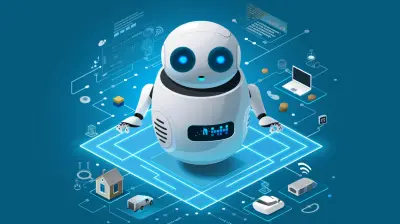
Exploring Voice Assistants for Multi-Lingual Households

Streamline Your Morning Routine with a Smart Speaker

Unboxing the Latest Smartphones: What You Need to Know

Exploring Server-Side Rendering for Faster Web Applications

Smart Speaker Troubleshooting: Common Issues and Fixes

The Role of Cloud Computing in Sustainable IT Practices

Compact Cameras that Pack a Punch: Our Top Picks
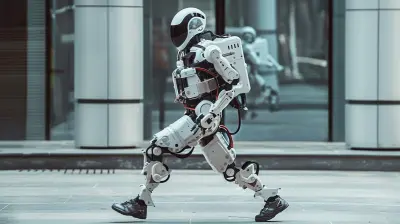
Exoskeleton Robots: Augmenting Human Strength and Endurance

How to Improve Code Consistency with Linting Tools

Bridging the Gap: Effective Communication Between Devs and Ops

How to Keep Your Camera Gear Safe on Outdoor Adventures

The Best External Hard Drives for Backup and Security